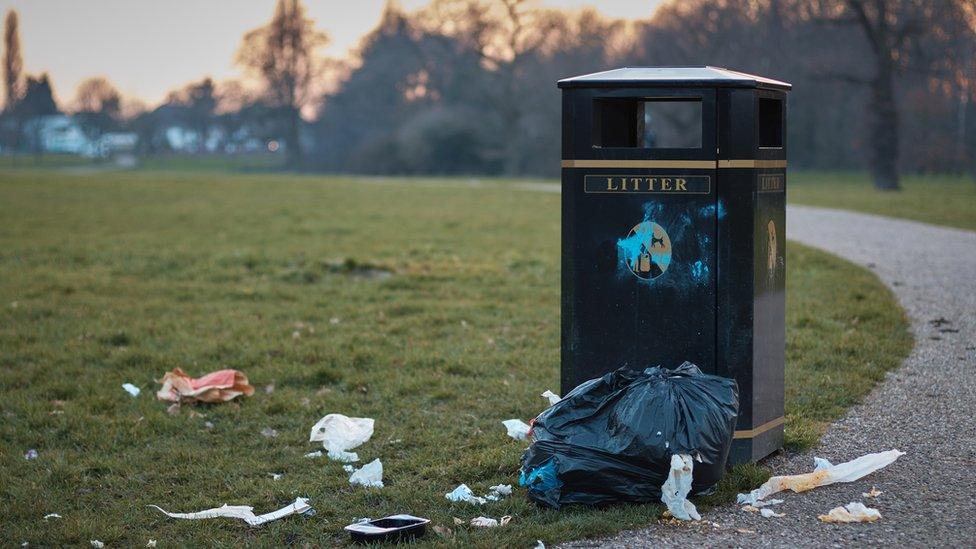NI streets littered with 1.3 million bits of rubbish
- Published
- comments

There are 1.3 million bits of litter on Northern Ireland's streets at any one time, according to the most extensive survey of its kind ever done.
That equates to 28 tonnes of rubbish.
The figures have emerged as a result of research carried out for environmental group Keep Northern Ireland Beautiful and a Stormont executive department.
Cigarette butts are the most commonly discarded item, followed by drinks cans, crisps packets, sweet wrappers and plastic bottles.
Plastics were found in 71% of all of the waste collected and the annual clean-up bill is estimated at £45m.
The survey found there were 481,000 cigarette butts on the streets of towns and villages, in public areas and on roadsides.
'Root problem is clear'
Keep Northern Ireland Beautiful chief executive Dr Ian Humphreys said it showed the public and businesses the seriousness of the situation to be faced.
Some 1,100 50m-long (164ft) survey areas were checked between mid-January and early-March 2019 in a range of urban and rural settings, and the litter was collected and counted.
After cigarettes, soft drink cans were the next most common bit of litter with 135,000 pieces, and there were 115,000 crisps packets and sweet wrappers thrown away.
1.3 millionThe pieces of rubbish on the streets at any time
£45mThe annual clean-up bill
481,000Cigarette butts dropped
135,000Soft drinks cans dropped
115,000Crisps packets dropped
32,000Single-use cups dropped
The survey found there were 114,000 plastic bottles and 32,000 single-use disposable cups along with a range of other food packaging, cigarette boxes and paper litter.
It estimates that there is a tonne of dog waste on Northern Ireland streets.
"This is the first ever Northern Ireland litter composition survey and the root problem is clear," said Dr Humphreys.
"We need to tackle the fact that one in three people openly admit to littering."
'Tackling the issue'
He said greater convenience meant more littering and the public and producers had to share the responsibility of that.
The survey was funded by the Department of Agriculture, Environment and Rural Affairs.
Senior official Dave Foster said the department would aim to tackle the issue using legislation, education, awareness and enforcement.
New EU legislation will make packaging producers liable for the full cost of clean-ups.
But it is not yet clear how much of that will make it into domestic law after Brexit.